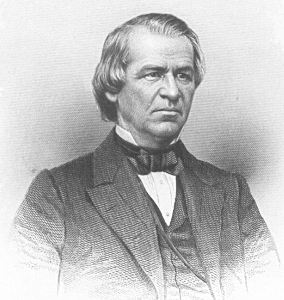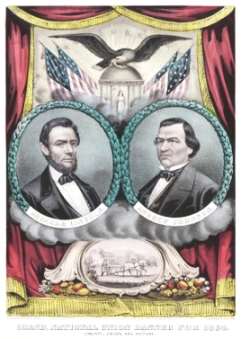Shouting the battle cry of freedom!
George Frederick Root, aka G. Friedrich Wurzel, (1820-1895) wrote the very popular Civil War song “The Battle Cry of Freedom” after President Abraham Lincoln’s call for volunteers in 1862.
The Union forever! Hurrah, boys, hurrah!
Down with the traitor, up with the star;
While we rally round the flag, boys, rally once again,
Shouting the battle cry of freedom!
Root was a prolific patriotic composer, eventually writing over 200 songs. His “The Battle Cry of Freedom” was arguably the most popular of his many compositions. Other well-known and classic Civil War songs by Root are; “Tramp! Tramp! Tramp!” (The Prisoner’s Hope), “The Vacant Chair,” and “Just before the Battle, Mother.”
The Battle Cry of Freedom – The Weavers – (Lyrics)
“The Battle Cry of Freedom” has two versions of lyrics, one for the Union and one for the Confederacy.
The Battle Cry of Freedom Lyrics – Union version
Yes we’ll rally round the flag, boys, we’ll rally once again,
Shouting the battle cry of freedom,
We will rally from the hillside, we’ll gather from the plain,
Shouting the battle cry of freedom!(Chorus)
The Union forever! Hurrah, boys, hurrah!
Down with the traitor, up with the star;
While we rally round the flag, boys, rally once again,
Shouting the battle cry of freedom!We are springing to the call with a million freemen more,
Shouting the battle cry of freedom!
And we’ll fill our vacant ranks of our brothers gone before,
Shouting the battle cry of freedom!Chorus
We will welcome to our numbers the loyal, true and brave,
Shouting the battle cry of freedom!
And although he may be poor, not a man shall be a slave,
Shouting the battle cry of freedom!Chorus
So we’re springing to the call from the East and from the West,
Shouting the battle cry of freedom!
And we’ll hurl the rebel crew from the land we love best,
Shouting the battle cry of freedom!Chorus
The Battle Cry Of Freedom: The South’s Version – 1864
The Battle Cry of Freedom Lyrics – Confederate version.
Our flag is proudly floating on the land and on the main,
Shout, shout the battle cry of Freedom!
Beneath it oft we’ve conquered, and we’ll conquer oft again!
Shout, shout the battle cry of Freedom!(Chorus)
Our Dixie forever! She’s never at a loss!
Down with the eagle and up with the cross!
We’ll rally ’round the bonnie flag, we’ll rally once again,
Shout, shout the battle cry of Freedom!Our gallant boys have marched to the rolling of the drums.
Shout, shout the battle cry of Freedom!
And the leaders in charge cry out, “Come, boys, come!”
Shout, shout the battle cry of Freedom!–Chorus
They have laid down their lives on the bloody battle field.
Shout, shout the battle cry of Freedom!
Their motto is resistance — “To tyrants we’ll not yield!”
Shout, shout the battle cry of Freedom!–Chorus
While our boys have responded and to the fields have gone.
Shout, shout the battle cry of Freedom!
Our noble women also have aided them at home.
Shout, shout the battle cry of Freedom!–Chorus



